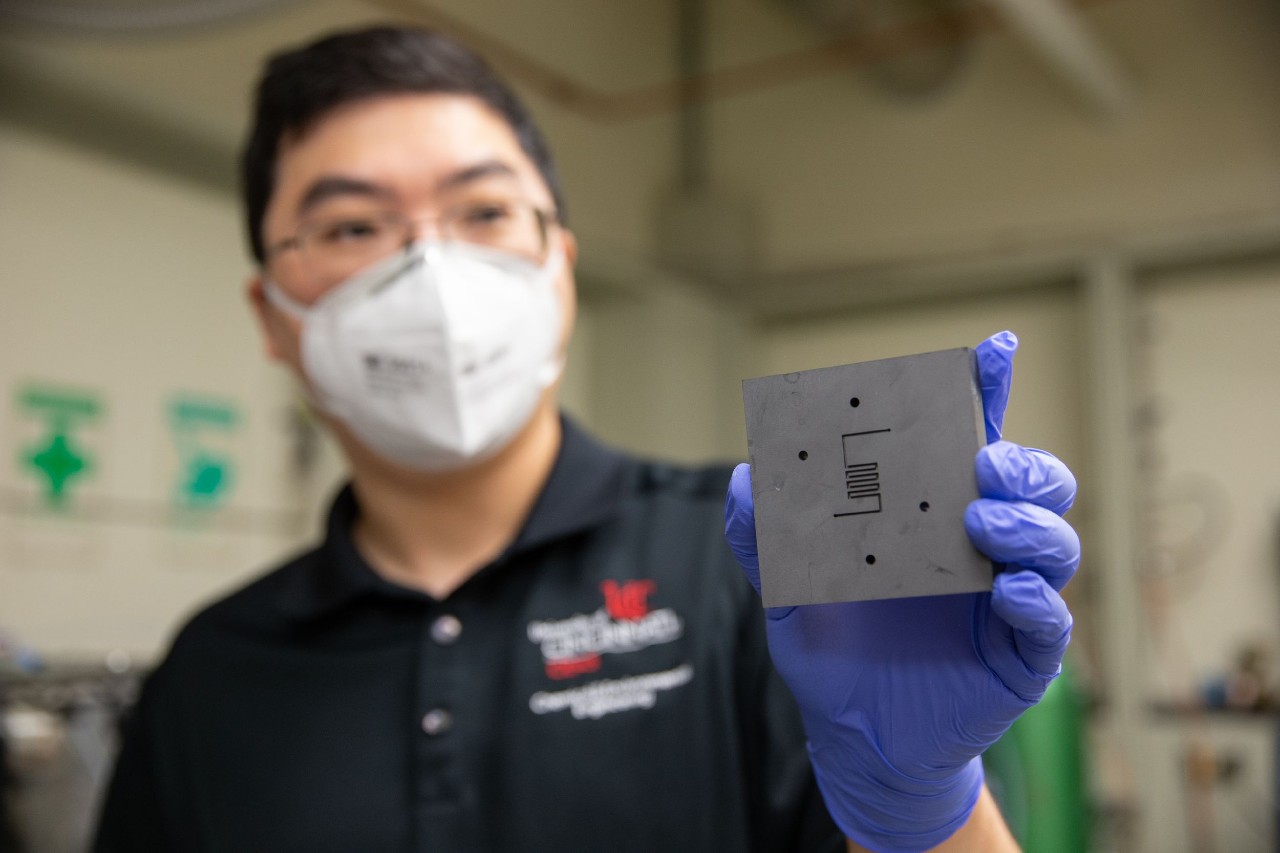
Engineering & Technology: UC engineers make rocket fuel from CO2 reactor
Jingjie Wu wants to apply new tech to climate change and space exploration
Engineering & Technology magazine highlighted research by University of Cincinnati chemical engineer Jingjie Wu that holds promise for addressing climate change and exploring space.
Wu, an assistant professor of chemical engineering in UC's College of Engineering and Applied Science, is developing new reactors that can convert carbon dioxide into a usable fuel. This could make wide-scale scrubbing of greenhouse gases from power plants and other sources more cost effective.
Wu and his students are experimenting with different catalysts to create more efficient reactors and different types of fuel.
And since the atmosphere of Mars is composed mostly of carbon dioxide, the Martian air could provide a ready source of rocket fuel for space exploration.
“Right now if you want to come back from Mars, you would need to bring twice as much fuel, which is very heavy,” Wu said. “And in the future, you’ll need other fuels. So we can produce methanol from carbon dioxide and use them to produce other downstream materials. Then maybe one day we could live on Mars.”
The latest research by Wu and doctoral student Tianyu Zhang was published in the journal Nature Communications with collaborators from Rice University, Shanghai University and East China University of Science and Technology.
Featured image at top: UC assistant professor Jingjie Wu holds up a tiny reactor in his chemical engineering lab. Photo/Andrew Higley/UC Creative + Brand

UC chemical engineering assistant professor Jingjie Wu, left and doctoral student Tianyu Zhang are experimenting with different catalysts to convert carbon dioxide to storable fuel to address climate change. Photo/Andrew Higley/UC Creative + Brand
Related Stories
UC education allowed couple to make mark on Cincinnati
April 24, 2024
As a native of Defiance, Ohio, John Deatrick, CEAS ’79, says arriving in Cincinnati to attend the University of Cincinnati in 1963 felt like landing in New York City.
Engineering student studying flight physics of birds
April 24, 2024
After earning a bachelor's degree in mechanical engineering in Nepal, Sameer Pokhrel came to the United States to further his education. From an early age, he had a lifelong fascination with aviation. As an adult, he transformed this fascination into a career, pursuing a doctoral degree in aerospace engineering at the University of Cincinnati's historic program. Here, he has succeeded in research, instruction, and was recently named Graduate Student Engineer of the Month by the College of Engineering and Applied Science.
The graduating class of 2024 shares creative works across 15...
April 24, 2024
DAAP’s Graduating Class of 2024 shares creative works across 15 interdisciplinary degree programs at DAAPworks.
